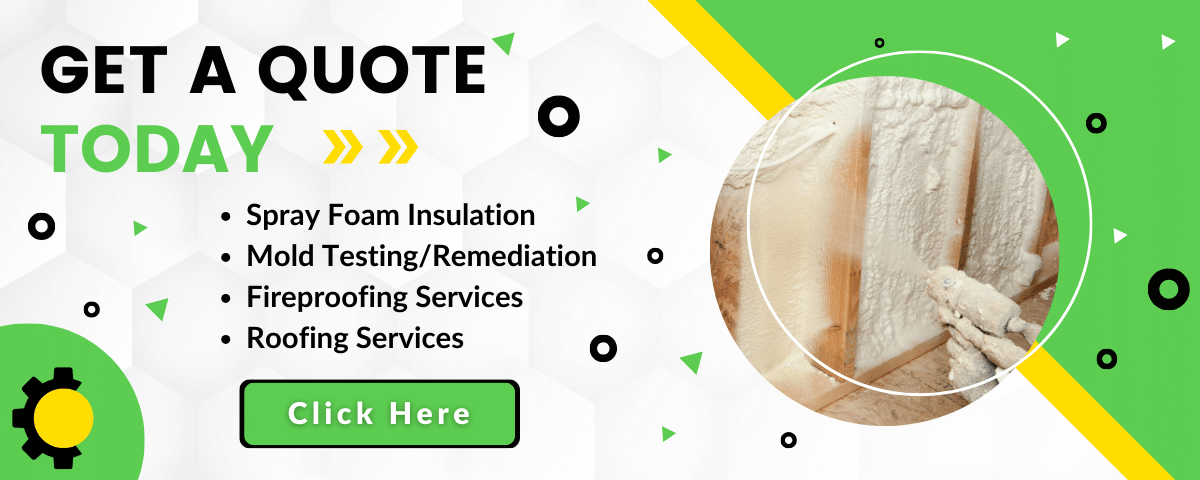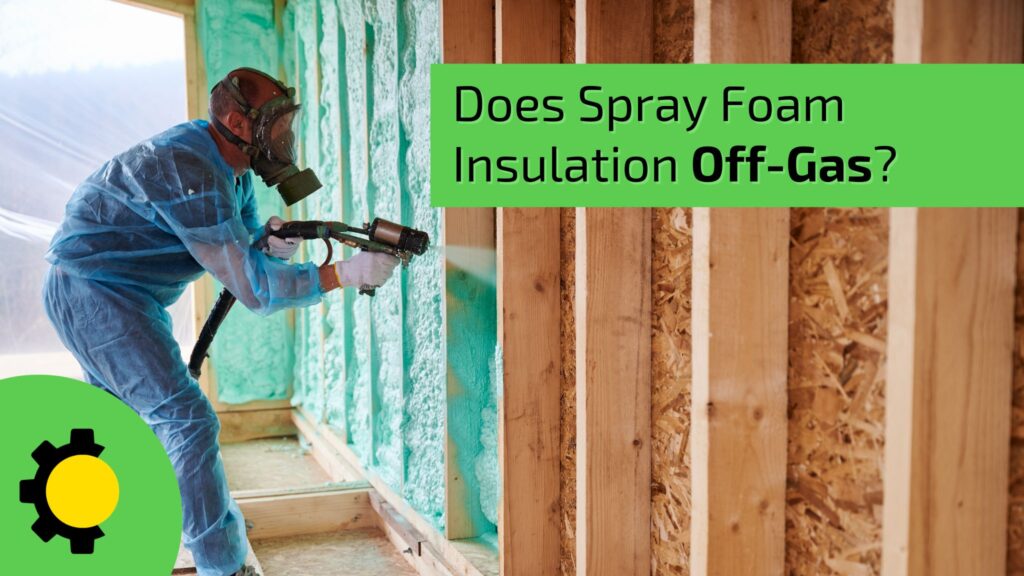You’ve likely come across alarming stories about spray foam insulation releasing harmful gases, disrupting the comfort and safety of homes. This can lead you to question how long this off-gassing lasts and what potential dangers are associated with it. You’ve probably also heard complaints about the persistent smell linked to off-gassing, with some claiming it never fully dissipates.
Relying on the internet for information in this case can be misleading, similar to looking up cold symptoms online and being convinced you have a life-threatening illness. Much of the information you find is outdated or based on issues that occur when spray foam insulation is improperly mixed or incorrectly installed.
Sunlight Contractors is dedicated to informing homeowners and dispelling these spray foam myths. With years of experience, we utilize high-quality spray foam insulations that feature low levels of volatile organic compounds (VOC). We’ll clarify what this means concerning spray foam off-gassing.
Our goal is to educate every homeowner who visits our website or follows us on social media. In line with this mission, this article will address whether spray foam insulation poses any dangers, what those potential dangers might be, essential information about off-gassing, and how to select spray foam that ensures safety for your home.
Understanding Spray Foam Off-Gassing and VOCs
Does spray foam insulation release gases?
The simple answer is yes.
When contractors refer to off-gassing, they are talking about the volatile organic compounds (VOCs) responsible for this process.
The duration of spray foam insulation off-gassing depends on these VOCs, which your contractor will discuss in terms of re-occupancy times. If a low VOC product is used, re-occupancy might be immediate or take just two to four hours. However, with a higher VOC spray foam, re-occupancy can take significantly longer—between 24 and 48 hours. This is a crucial consideration if you are concerned about off-gassing.
If you are worried about odors in your home, there is a solution. A reliable contractor will use industrial fans during the installation to create airflow, helping to ventilate the area effectively.

Is Spray Foam Insulation Dangerous?
Generally, spray foam insulation is safe for residential use. However, materials with higher VOC levels can lead to increased off-gassing, which might cause some issues at home, though these issues are not dangerous or life-threatening. Hence, it’s advisable to opt for spray foam with low VOC levels.
Low VOC spray foam insulation is considered industry-standard because it minimizes off-gassing. But what exactly are VOCs? According to the U.S. Environmental Protection Agency, volatile organic compounds are substances with high vapor pressure and low water solubility.
In the context of spray foam insulation, VOCs are released as gases from certain solids or liquids during the spraying process. While this might sound alarming, manufacturers have significantly reduced the exposure risk to homeowners through improved chemical formulations and building materials.
What are the Dangers of Spray Foam Insulation?
Off-gassing from spray foam insulation can pose some health concerns, particularly for individuals sensitive to odors or those with respiratory conditions such as asthma. For these individuals, exposure to excessive off-gassing from lower-quality spray foam could potentially exacerbate their symptoms.
It’s important to remember that many household items also off-gas, including dry cleaning, body sprays, and hair sprays. This means that spray foam insulation is just one of many potential sources of VOCs in your home.
Choosing the Safest Spray Foam for Your Home
If off-gassing is a concern, focus on re-occupancy time and selecting a low VOC product. It’s essential to hire a spray foam contractor who will openly discuss the products they use and the associated VOC levels. Ensuring you select a reputable and knowledgeable insulation contractor will help you get the best and safest spray foam insulation for your home.
Conclusion
Understanding the facts about spray foam insulation and its off-gassing is crucial for making informed decisions about your home. While off-gassing is a natural process, choosing low VOC products and working with experienced contractors can minimize any potential issues. By focusing on high-quality materials and proper installation, you can enjoy the many benefits of spray foam insulation without compromising your indoor air quality. Stay informed and proactive to ensure your home remains a safe and comfortable environment.

